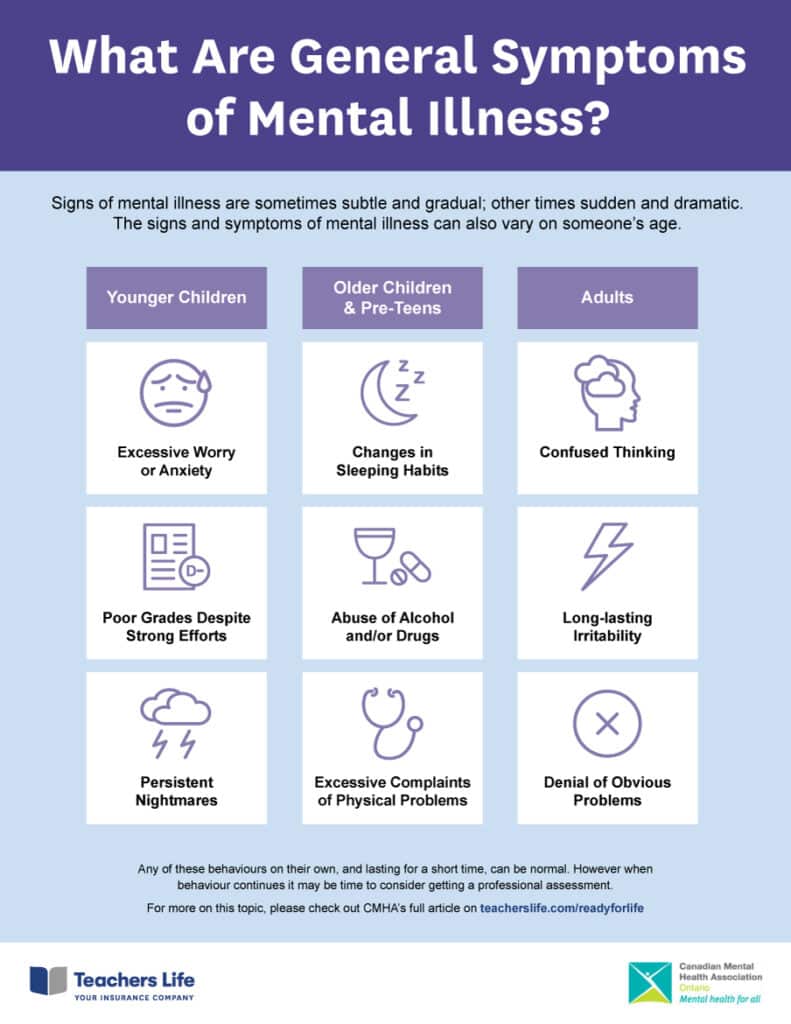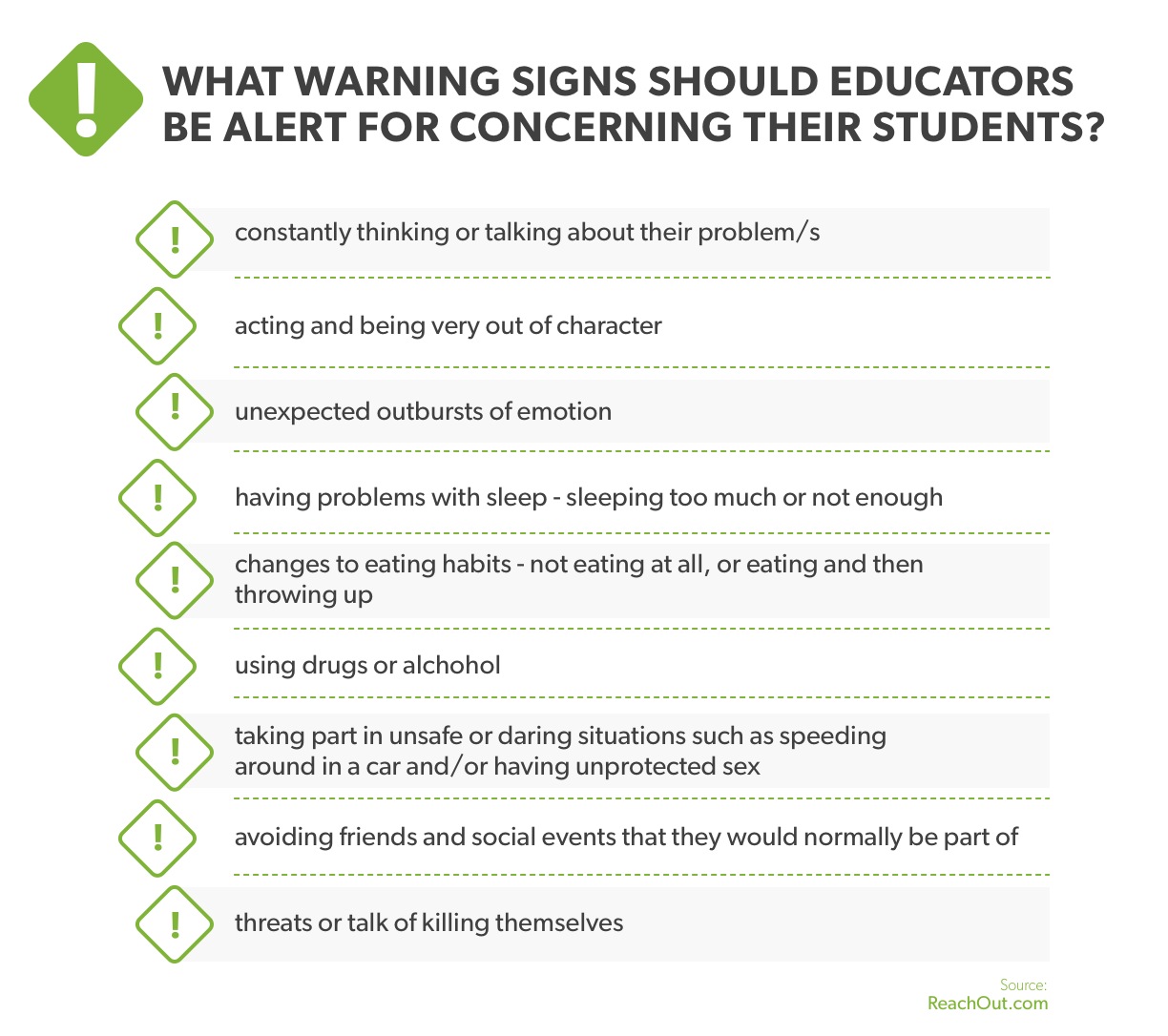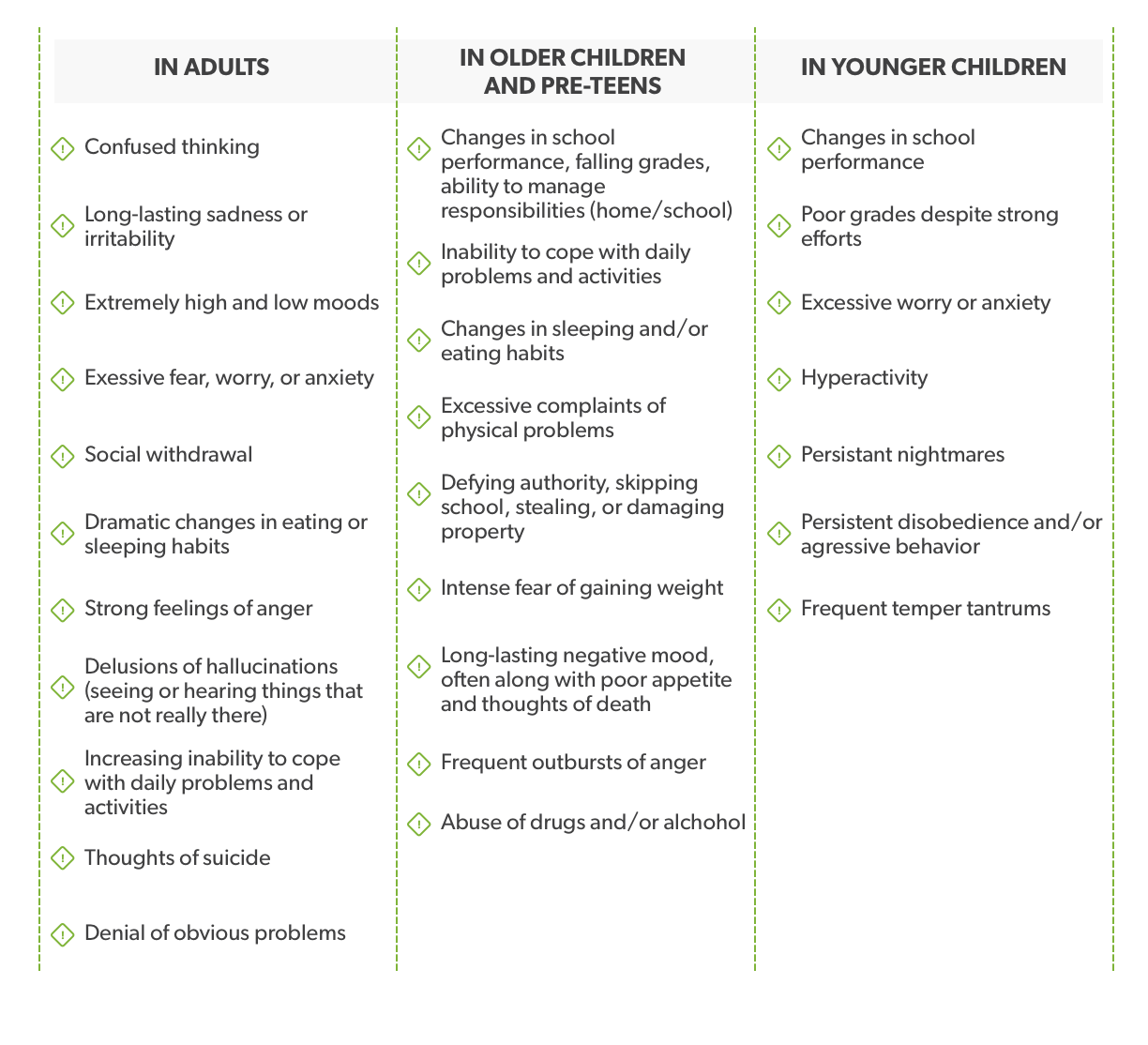
Often the first people who notice that an someone is having difficulties are those closest to the person – their family, teachers and peers. Sometimes the signs are subtle and emerge gradually. Other times signs can be quite dramatic and appear suddenly. Noticing the signs of mental illness is particularly difficult during the growing-up years, especially the teen years, because behaviour changes are often dismissed as “growing pains” or “teenage angst.”
In an article in Huffington Post Canada, Richard Shepler, a senior research associate at the Begun Center for Violence Prevention, Research and Education at Case Western Reserve University, explains that
“one may see a variety of emotions and behaviours with adolescence such as moodiness, irritability and impulsiveness that can be fairly typical of adolescence or a manifestation of normal development…the key difference between ‘normal’ adolescent emotions and a mental health disorder is duration, when the emotion or behaviour persists and interferes with the young person’s daily life.”
Generally, it is not just one change in an individual that becomes noticeable but several changes in their behaviour. It is important to recognize that any of these behaviours on their own, and lasting for a short time, can be normal. It is when the behaviour continues or is joined by other behaviour changes that it is time to consider getting a professional assessment. That said, if the person makes any comment about wanting to die or kill him- or herself, the comment needs to be taken seriously. Call a centre for professional support.
Understanding the general symptoms of mental illness can help you support yourself and your loved ones through their mental health journey. Here are some behaviors to look out for at all ages.
Print a copy of The General Symptoms of Mental Illness for your home or classroom.
The signs and symptoms of mental illness can vary depending where a person is in their life span. The diagram shows some general symptoms that may indicate a mental illness:
All articles and other information posted on http://teacherslife.com are intended to be informational only and not for the purpose of providing any health, medical, financial, insurance, legal, accounting, tax or other advice. Teachers Life does not guarantee or represent that any information in these articles or elsewhere on this website is accurate, complete, current or suitable for any particular purpose. You use or rely on such information solely at your own risk. All articles and website content are the property of Teachers Life and all rights are reserved. IN NO EVENT WILL TEACHERS LIFE BE LIABLE FOR ANY LOSS OR DAMAGE YOU INCUR RELATED TO YOUR USE OR RELIANCE OF THE INFORMATION IN THESE ARTICLES OR ELSEWHERE ON THE WEBSITE. See the Terms of Use for more information.


